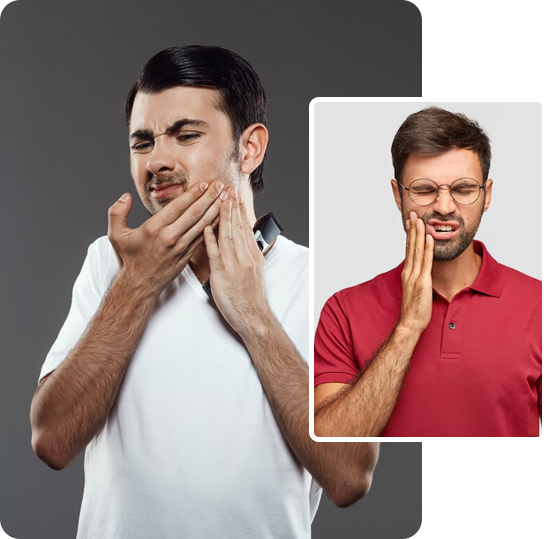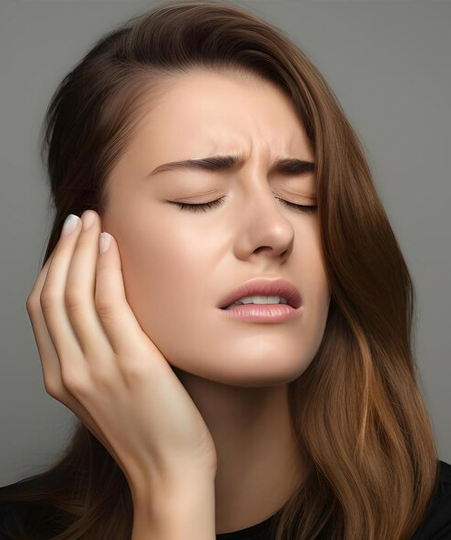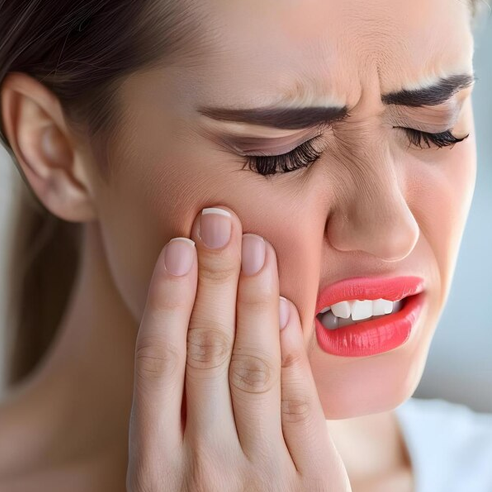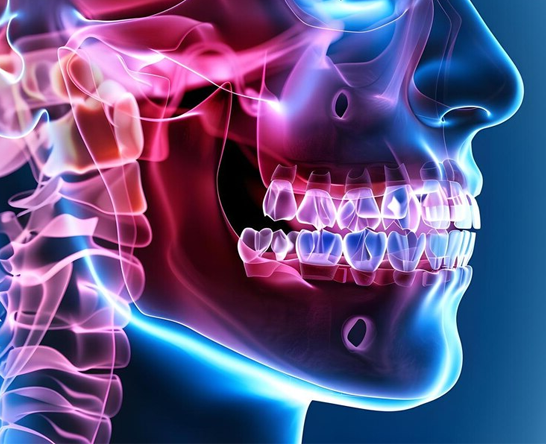Soft Tissue
Gentle therapies release muscle tension, improving flexibility and reducing pain around jaw and facial areas effectively.
TMJ pain can significantly impact daily life, causing discomfort, restricted jaw movement, and even headaches. TMJ Pain Management focuses on addressing the root causes of jaw tension, such as muscle imbalance, joint misalignment, or stress-related clenching and grinding. Using gentle Advanced Orthopaedic manual therapy techniques, treatment aims to reduce inflammation, restore joint mobility, and alleviate muscle tension around the jaw and neck. By adopting a holistic approach, TMJ pain management also emphasizes lifestyle changes, including stress reduction and ergonomic improvements, to prevent recurrence. Whether you experience persistent jaw pain or occasional discomfort, this comprehensive approach provides lasting relief and improves your overall well-being. Take the first step towards a pain-free life today!

Prolonged stress or jaw clenching often creates muscle tension, leading to TMJ discomfort.
Habitual grinding wears down joint structures, contributing to misalignment and pain.
Direct trauma can damage TMJ ligaments, cartilage, or muscles, causing persistent issues.
Poor neck and head posture disrupts jaw alignment, increasing joint-related stress.

Gentle therapies release muscle tension, improving flexibility and reducing pain around jaw and facial areas effectively.
Targeted techniques restore jaw movement, alleviate stiffness, and promote alignment for improved functionality and comfort.
Guidance on stress reduction helps decrease jaw clenching, minimizing tension-related symptoms and enhancing relaxation overall.
Correcting posture reduces strain on jaw muscles, promoting balance and reducing long-term discomfort and related issues.
Jaw tension can significantly affect overall well-being, leading to discomfort and impacting daily activities. Common symptoms include persistent headaches, facial pain, and difficulty chewing or speaking. Prolonged tension may result in misalignment of the jaw joint, creating additional strain on neck and upper back muscles. This imbalance can disrupt sleep, cause stress, and even trigger chronic pain syndromes. Factors such as teeth grinding, stress, and poor posture are common contributors. Addressing jaw tension through holistic care, including targeted therapies, stress management, and lifestyle adjustments, promotes long-term relief. Recognizing and treating its root causes can help restore comfort, improve functionality, and enhance quality of life.

Persistent pain or tenderness in the jaw muscles can indicate underlying TMJ issues requiring attention.
Audible clicking or popping sounds during jaw movement often signal misalignment or joint dysfunction in TMJ.
Difficulty in fully opening or closing the mouth properly is often a common sign of joint-related complications.
Persistent muscle tightness or noticeable fatigue in the face muscles could point to TMJ-related imbalances.
Experience personalized treatments and advanced therapies designed to alleviate TMJ pain and restore natural jaw function.
Orthopaedic manual therapy techniques for jaw pain focus on addressing the root causes of TMJ disorders. Using gentle, non-invasive methods, manual therapy aim to release muscle tension, improve joint mobility, and promote better alignment of the jaw. Soft-tissue mobilization and stretching can relieve stiffness and restore natural movement, while joint articulation helps reduce pain and inflammation. In some cases, we may also use intra-oral techniques to target specific muscles inside the mouth. The goal of OMT treatment is to enhance overall function and alleviate discomfort, providing long-lasting relief from jaw pain and improving your quality of life.

TMJ pain can result from jaw clenching, teeth grinding, muscle imbalances, stress, or joint misalignment.
Osteopathy treats TMJ pain through soft-tissue mobilization, joint articulation, and intra-oral techniques to improve function.
Yes, TMJ pain can cause headaches, neck and back tension, and restricted jaw movement.
A mouthguard may be recommended to reduce the effects of teeth grinding or jaw clenching at night.
© All Rights Reserved by Kriston Healthcare